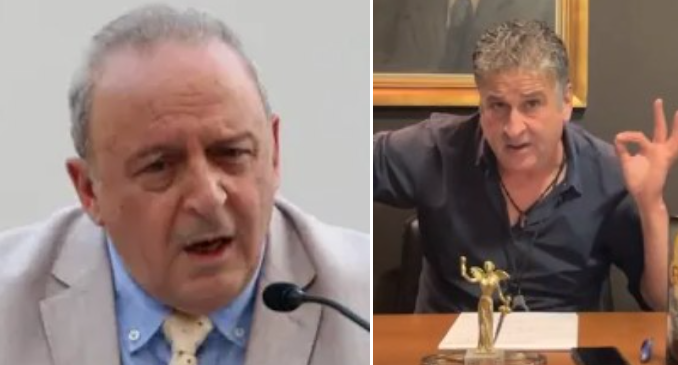
University of Cambridge and Texas research into banks and companies in 273 countries reveals banks and other financial intermediaries are violating international rules on money laundering, terrorist financing, tax evasion and the Magnitsky sanctions.
It seems that money laundering of illegal activities on this planet is still basically undisturbed as banks and other intermediary firms in the global financial sector continue as long as they cannot respect international rules.
A study conducted by researchers at the University of Cambridge and the University of Texas at Austin shows that criminals everywhere — including drug traffickers, tax evaders, white-collar traffickers, government officials who steal public funds, and terrorists — can sleep peacefully and easily break international rules that exclude them from the international financial system. Because banks… change.
The university survey was conducted in 2020-21 and focused on a fairly large sample of banking institutions. The researchers emailed 5,000 banks and 7,000 other companies in the financial sector in 273 countries and financial jurisdictions around the world to test their compliance with international rules on money laundering, tax evasion, terrorist financing and the US Magnitsky Act, enacted by the Obama administration, which imposes certain penalties. Russian government officials implicated in the murder of Russian lawyer Sergei Magnitsky.
The research found that one in 30 banks do not comply with international regulations, while if those who did not respond to the researchers’ emails were removed, one in 10 banks.
In terms of Magnitsky sanctions, it found that 1 in 20 banks did not comply, while if those that did not comply were removed, it was 1 in 6, including the UK and the US, in high-risk countries, including the researchers, the researchers said. Papua New Guinea and Pakistan, as well as offshore jurisdictions such as the British Virgin Islands.
They then presented themselves as representatives of these companies and sought to open bank accounts for them. They also impersonated people from high-risk countries, including several Russians named on Magnitsky’s sanctions lists, and then asked middlemen to set up shell companies on their behalf to limit liability, save on taxes and preserve their privacy. They also asked if they needed to provide any documents to verify their identity.
And they found that the whole thing is…. black vine after, among other things, they found that the people named in the Magnitsky lists could access the financial system and evade the rules just as easily as the low-risk people.
The researchers noted that some of the responses they obtained showed banks not only disregarding regulations, but also willing to work with high-risk clients to break regulations and hide their identities.
The researchers’ final conclusion was that the rules don’t work because banks, financial intermediaries, and corporations “completely fail to distinguish between very low and very high risk clients.” It should be noted that the estimated amount of black money laundered worldwide each year, according to the United Nations, is equivalent to 2-5% of global GDP, or $800 billion to $2 trillion.
The revelations of the Danske Bank scandal some 3 years ago (the “biggest ‘laundry’ in European history”) – through which more than 200 billion euros were “laundered” from Russia and other republics between 2007 and 2015 from the former Soviet Union – showed that in addition to The Estonian branch of Denmark’s largest bank, the “machine” for legalizing dirty money involved leading Western banking institutions, such as the German Deutsche Bank, the American JP Morgan and Bank of America, the Swedish Swedenbank, but also thousands of limited liability companies in United Kingdom (LLPs) that act as PO Boxes.
The black money ended up in the latter’s accounts, shortly before it was moved to offshore tax havens or used to purchase luxury homes, yachts and legal investments.

“Avid problem solver. Extreme social media junkie. Beer buff. Coffee guru. Internet geek. Travel ninja.”





More Stories
The family owned huge wealth without knowing it
Financial Times: A Greek economic miracle with the country…the poorest in Europe
'Bears' Shoot Wall Street – Black Manta for GDP and Inflation – Newsbomb – News